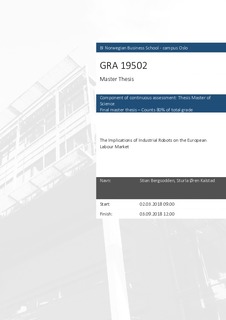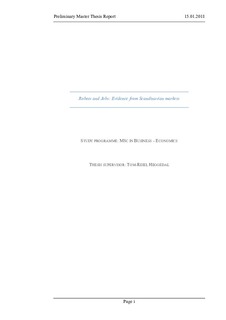| dc.description.abstract | As robots and other computer-assisted technologies substitute labour in an
increasing number of tasks, there are increasing concerns to how this development
will influence employment and wages. In this paper, we analyse the economic
contributions of modern, industrial robots which are flexible, versatile and
autonomous machines to determine how they affect the labour markets in Europe.
The results indicate that the use of robots does influence European labour markets,
suggesting that the level of employment is on aggregate level positively affected
by robot exposure, which points to a dominating productivity effect. Still, our
results suggest that the young and low-skilled labour groups are negatively
affected, something that is offset by the positive effects observed for the older
labour groups with higher educational attainment. The analysis only point to a
limited number of robust and significant effects of robot exposure on wages, but
these results suggest that robot exposure has a positive effect on wages. The
results are based on the manufacturing sector, as the other sectors until now have
been less influenced by industrial robots, and hence our findings may not be
applicable for the economy as a whole. | nb_NO |

